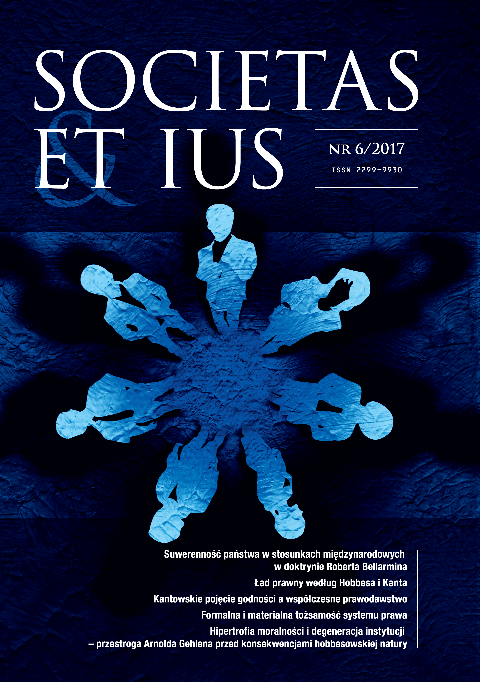Ład prawny według Hobbesa i Kanta
DOI:
https://doi.org/10.12775/SEI.2017.004Abstrakt
The paper aims at comparing two concepts of legal order: retributive and utilitarian one. Kant turns out to be a typical representative of the first one; Hobbes represents the second. The main point of the argument is: what is the aim of punishment? Utilitarists think that the purpose of the penalty is to reduce the number of crimes. Proponents of the retributive theory stress the enforcement of justice as the main point of punishment. In the end the author tries to answer the question if supernaturalistic antropology is necessary as a foundation of retributive theory of punishment.Pobrania
Opublikowane
2018-04-20
Jak cytować
1.
MIROSŁAWSKI, Mateusz. Ład prawny według Hobbesa i Kanta. Societas et Ius [online]. 20 kwiecień 2018, nr 6, s. 87–97. [udostępniono 23.12.2025]. DOI 10.12775/SEI.2017.004.
Numer
Dział
Articles
Statystyki
Liczba wyświetleń i pobrań: 1766
Liczba cytowań: 0



